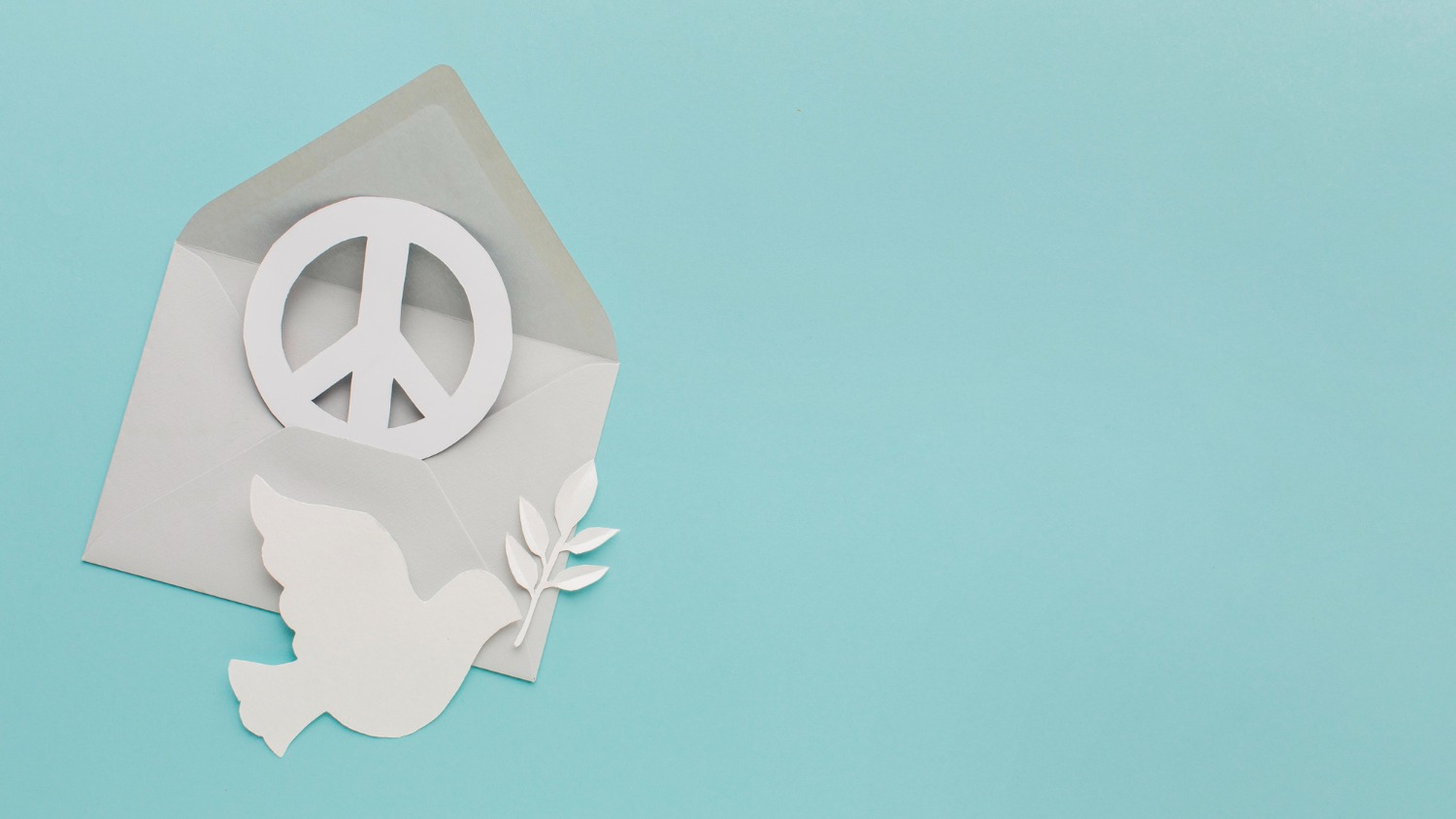Learning to protect your peace is no longer a luxury — it’s a survival skill. The digital age promised connection, but somewhere between constant scrolling and endless updates, it quietly stole something more valuable: stillness. Today, to protect your peace means reclaiming the right to quiet, clarity, and mental freedom in a world that feeds on your attention.
The digital world is designed to keep you hooked. Algorithms know what you want before you do. Notifications are engineered to spark your curiosity, and social feeds are tailored to keep you scrolling just one more minute. But those minutes add up — hours, days, even years — and with each moment surrendered, your mind grows noisier and your peace weaker. To protect your peace in this landscape means to draw lines in the sand between what deserves your energy and what doesn’t.
True peace is not found in escape, but in intention. You can’t delete the internet or hide from technology, but you can decide how much space it occupies within you. Protecting your peace is about reclaiming the boundaries that the digital world has blurred. It’s not about cutting off entirely; it’s about reconnecting consciously.
Protecting your peace in the digital age means reclaiming focus, presence, and emotional balance amid constant connectivity. The article explores how digital noise, comparison, and endless stimulation drain mental clarity, while intentional boundaries and mindful attention restore calm. True peace today is not found in disconnection but in conscious, deliberate living where technology serves rather than consumes you.
The Invisible Noise of the Digital World

Modern life thrives on noise — not just sound, but mental clutter. Your mind is bombarded with opinions, updates, trends, and arguments that have nothing to do with you. Yet, you carry them in your pocket. Every time you unlock your phone, you’re inviting thousands of invisible voices into your head. That’s why so many people feel drained without doing anything physically demanding. The exhaustion comes from overstimulation, not effort.
To protect your peace, you must first recognize the cost of this invisible noise. It’s not only about screen time; it’s about attention time. When you allow digital clutter to flood your day, you lose the quiet moments where creativity and calmness live. The mind never has a chance to reset.
Think of peace as mental oxygen. Without it, you suffocate slowly — not dramatically, but quietly, beneath notifications and expectations. Protecting your peace in this environment isn’t selfish; it’s survival.
Boundaries Aren’t Barriers — They’re Shields
Many people confuse boundaries with walls. In reality, boundaries are shields — transparent, flexible, and powerful. They don’t shut the world out; they filter what comes in. In the digital age, boundaries are how you protect your peace from the constant pull of technology.
A healthy digital boundary could mean setting times when you’re unreachable, turning off notifications, or removing certain apps that drain you. It could also mean learning to scroll without absorbing, to observe without reacting. The goal isn’t to isolate yourself, but to stay connected without being consumed.
When you start enforcing digital boundaries, something magical happens. The world doesn’t end. You don’t miss out. Instead, you begin to feel like yourself again — grounded, aware, present. You start to realize how much energy was being siphoned off by the endless loop of content and comparison. To protect your peace means taking back that energy and using it where it truly matters.
The Paradox of Connectivity
We live in the most connected era in history — yet anxiety, depression, and loneliness have never been higher. The paradox is painful but revealing: constant connectivity doesn’t equal genuine connection. You can be online all day and still feel unseen. The human mind isn’t built to process thousands of inputs or endless validation loops. It’s built for meaningful exchange, reflection, and presence.
To protect your peace, you must learn to separate connection from consumption. When you spend hours scrolling through filtered lives, you’re consuming illusions of reality. They trigger comparison, insecurity, and restlessness. But when you have a deep conversation, share a laugh, or connect through creativity, you nourish your peace instead of depleting it.
The difference lies in intention. Ask yourself: are you connecting to fill a void or to feed your spirit? Protecting your peace means knowing that answer before every click.
The Emotional Cost of Constant Comparison
Comparison is the silent killer of inner peace. In the digital world, everyone is performing their best life — success, beauty, and happiness on display like trophies. What you don’t see are the edits, the exhaustion, the doubts behind the scenes. Yet, your mind absorbs the illusion as truth. You measure your progress against someone’s highlight reel and wonder why you feel behind.
Protect your peace by remembering that digital perfection is not real. Behind every flawless feed is a person fighting invisible battles, just like you. Peace comes when you stop competing with illusions. When you release the need to measure your worth by digital applause, you begin to feel whole again.
You don’t need validation to exist peacefully. You need alignment. Protecting your peace means trusting that your path is unfolding exactly as it should, even if it doesn’t look as shiny online.
Reclaiming Attention as an Act of Power
Your attention is the most valuable currency in the digital world. Every app, every ad, every notification competes for it. That’s why protecting your peace begins with protecting your attention. When you control your attention, you control your reality.
Every time you pause before checking your phone, you’re choosing awareness over impulse. Every time you turn off alerts, you’re reclaiming your power from algorithms that profit from your distraction. Protect your peace by training your mind to choose presence. It sounds simple, but it’s revolutionary.
Imagine giving your full attention to one task, one person, one moment — without interruption. That’s when you rediscover depth. You notice textures, feelings, details that digital noise had stolen. That clarity is peace, and it’s available only to those who guard their attention fiercely.
Emotional Boundaries in the Age of Opinions
Online spaces have blurred the line between sharing and oversharing, between discussing and debating. The more connected we are, the easier it becomes for external opinions to invade internal calm. One negative comment, one disagreement, one thread of chaos can shake your peace if you don’t have emotional boundaries.

To protect your peace, you must know what deserves your reaction. Not every comment needs a response. Not every argument deserves your energy. Emotional maturity means recognizing when silence is strength, not weakness. When you stop feeding negativity with your attention, it starves.
Peace thrives where reaction ends. Protecting your peace means valuing silence over shouting, calm over chaos, and understanding over proving. In the digital age, this is a radical choice — and one that transforms everything.
The Myth of Productivity and the Burnout Cycle
The digital era glorifies busyness. Hustle culture tells you that peace is for the lazy, that success requires constant motion. But the truth is the opposite: burnout is not a badge of honor, it’s a warning sign. Without peace, productivity becomes empty performance.
To protect your peace, redefine what success means. True success is not being constantly available or endlessly busy. It’s being grounded enough to know when to stop. When you honor rest as much as work, creativity flourishes. Peace doesn’t kill ambition — it fuels it with clarity.
The burnout cycle breaks the moment you stop measuring worth by output and start measuring it by alignment. When you protect your peace, you’re not falling behind — you’re moving forward with purpose.
Digital Detox as a Reset, Not a Rebellion
You don’t need to disappear from the internet to protect your peace, but you do need to step away sometimes. Digital detoxing isn’t about rejection; it’s about resetting. It’s a conscious pause that helps your mind breathe again.
The first hours may feel strange. You’ll reach for your phone out of habit, craving the dopamine hit of new notifications. But soon, something shifts. You begin to notice the world again — the light, the silence, the sensations you forgot existed. You start living instead of just updating.
Protect your peace by giving yourself permission to disconnect regularly. The world won’t end. Your relevance won’t fade. What you’ll gain instead is a deeper sense of self — one that doesn’t depend on screens to feel whole.
Protect Your Peace Through Presence
Presence is the opposite of distraction. It’s what digital life quietly erodes with every ping. To protect your peace, you must return to presence deliberately — through mindfulness, breathing, solitude, or simply observing without reacting.
Being present means feeling the moment without needing to capture it. It’s choosing experience over exhibition. The next time you reach for your phone to post something beautiful, try instead to just live it. Let the memory exist in your mind, not in a feed.
Peace grows in the soil of presence. Protecting your peace means giving your full self to the moment you’re in, not the one online.
The Relationship Between Peace and Self-Worth
Many people lose their peace because they attach it to external approval. Social media metrics become mirrors for self-worth. A post with fewer likes feels like a personal failure, even when logically you know it isn’t.
Protect your peace by separating identity from digital performance. You are not your content, your numbers, or your reach. Your value is intrinsic, not algorithmic. When you stop seeking worth from digital validation, you become untouchable. Peace then becomes permanent, not conditional.
True peace is quiet confidence — the kind that doesn’t need applause to exist. When you protect your peace, you begin to understand that real power is being at ease with yourself, even when no one is watching.
Final Words
Protecting your peace is not a single act; it’s a lifestyle. It’s choosing mornings without screens, conversations without distractions, and nights without endless scrolling. It’s building habits that honor stillness as much as achievement.
In the digital age, protecting your peace may feel rebellious, but it’s actually a return — a return to human rhythm, to natural quiet, to deep connection. It’s remembering that peace was never lost; it was just buried beneath noise. When you start choosing moments of quiet, you start hearing your own thoughts again. That’s when life becomes intentional.
To protect your peace in a world addicted to noise is to stand against the tide. It’s an act of courage — not weakness. It’s a declaration that your mind, your time, and your calm are sacred. And in doing so, you inspire others to do the same. Because peace, when protected, spreads.
Andrea Balint is a writer and researcher focused on human behavior, workplace psychology, and personal growth. Through her work at CareersMomentum, she explores how mindset, leadership, and emotional intelligence shape modern careers. With a background in communication and HR development, she transforms complex ideas into practical insights that help readers build clarity, confidence, and professional purpose.
